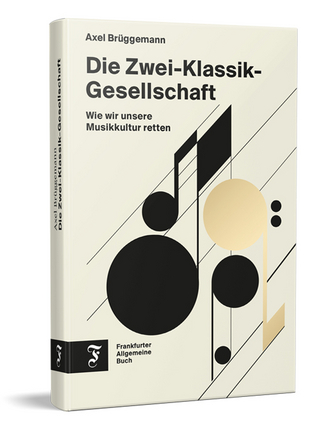
Dr. Charles Burney and the Organ
Seiten
2021
Cambridge University Press (Verlag)
978-1-108-97286-4 (ISBN)
Cambridge University Press (Verlag)
978-1-108-97286-4 (ISBN)
No better introduction to the aesthetic ethos of the eighteenth-century English organ can be found than in Charles Burney's remarks disseminated in his various writings. This Element traces the evolution of the English organ back to the Restoration and setting Burney's remarks on the instrument in their historical context.
Whereas Dr Burney's writings are often mentioned in studies on eighteenth-century music, not much interest seems to have been given specifically to his relation to the organ, which played an important part in his professional career as a practising musician. No better introduction to the aesthetic ethos of the eighteenth-century English organ can be found than in Burney's remarks disseminated in his various writings. Taken together, they construct a coherent discourse on taste and constitute an aesthetic. Burney's view of the organ is indicative of a broader ethos of moderation that permeates his whole work, and is at one with the dominant moral philosophy of Georgian England. This conception is ripe with patriotic undertones, while it also articulates a constant plea for politeness as a condition for harmonious social interaction. He believed that moderation, simplicity, and fancy were the constituents of good taste as well as good manners.
Whereas Dr Burney's writings are often mentioned in studies on eighteenth-century music, not much interest seems to have been given specifically to his relation to the organ, which played an important part in his professional career as a practising musician. No better introduction to the aesthetic ethos of the eighteenth-century English organ can be found than in Burney's remarks disseminated in his various writings. Taken together, they construct a coherent discourse on taste and constitute an aesthetic. Burney's view of the organ is indicative of a broader ethos of moderation that permeates his whole work, and is at one with the dominant moral philosophy of Georgian England. This conception is ripe with patriotic undertones, while it also articulates a constant plea for politeness as a condition for harmonious social interaction. He believed that moderation, simplicity, and fancy were the constituents of good taste as well as good manners.
1, Burney, the Professional Organist; 2. Burney's Pieces for the Organ; 3. Historical and Ideological Context; 4. Questions of Style; 5. Burney's Musical Travels (1): Foreign Organists; 6. Burney's Musical Travels (2): Foreign Organs; 7. National Pride; 8. Sociability, Manners and Politeness.
| Erscheinungsdatum | 09.03.2021 |
|---|---|
| Reihe/Serie | Elements in Music and Musicians 1750–1850 |
| Zusatzinfo | Worked examples or Exercises |
| Verlagsort | Cambridge |
| Sprache | englisch |
| Maße | 150 x 230 mm |
| Gewicht | 130 g |
| Themenwelt | Kunst / Musik / Theater ► Musik ► Klassik / Oper / Musical |
| ISBN-10 | 1-108-97286-1 / 1108972861 |
| ISBN-13 | 978-1-108-97286-4 / 9781108972864 |
| Zustand | Neuware |
| Haben Sie eine Frage zum Produkt? |
Mehr entdecken
aus dem Bereich
aus dem Bereich
wie wir unsere Musikkultur retten
Buch | Hardcover (2023)
Frankfurter Allgemeine Buch (Verlag)
24,00 €


